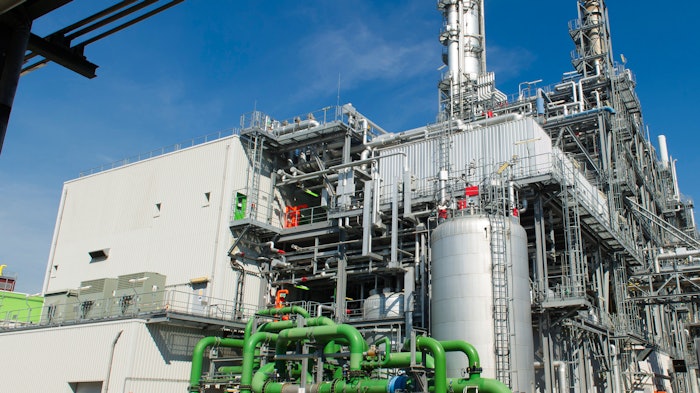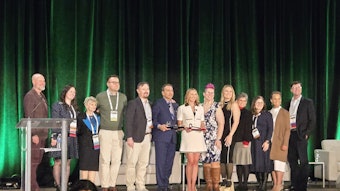
BASF has been a long-standing, trusted partner of leaders in the Flavor and Fragrance (F&F) industry. The company is poised to help its customers and partners thrive in the face of the multiple challenges and changes which are shaping the future of this dynamic business – with an expanding global production network, ambitious sustainability and innovation approaches and by leading in the development of future regulatory requirements.
In the following article, Thilo Bischoff, senior vice president of aroma ingredients; Steffen Götz, vice president of aroma ingredients; and Felix Klug, director of global regulatory and external Affairs & quality compliance aroma ingredients, share insights about major trends, the development of innovative products and key regulatory challenges faced by the F&F industry today.
BASF
Ludwigshafen, Germany
2024 Sales: €65.3 billion
What major trends are currently shaping the flavor and fragrance industries, and how are they influencing BASF’s product development?
Thilo Bischoff [TB]: While there are plenty of consumer trends that influence the F&F industry, there are three key focus areas that we at BASF Aroma Ingredients Thilo Bischoff, senior vice president of aroma ingredients, BASF SE.Courtesy of BASF
Thilo Bischoff, senior vice president of aroma ingredients, BASF SE.Courtesy of BASF
Offering Pragmatic Sustainability Solutions
When it comes to sustainability, consumers are increasingly prioritizing eco-friendly products and demanding transparency in sourcing and ingredient composition. At BASF, we actively invest in the development of sustainable ingredients. We are committed to ensuring biodegradability as a fundamental aspect of our new aroma ingredients, and to maintaining a clean regulatory profile. In addition, combatting climate change has become a priority in the F&F industry as more and more consumers make environmentally conscious purchasing decisions. Thus, over the past years an increasing amount of attention has been paid to the amount of greenhouse gas (GHG) emissions associated with manufacturing an aroma ingredient, from raw material extraction until it leaves the company gates.
We find it crucial to help customers achieve their ambitious scope 3 GHG emission reduction targets and to be transparent about the Product Carbon Footprint (PCF) of our products. I'm proud that we are the first large chemical company classifying aroma ingredients according to a clearly defined PCF scoring system, a 6-level color and letter scale that classifies PCF values from low to high. Most of our products fall into PCF range A, with emissions below 15 kg CO2e/kg. In addition, we offer options with even further reduced PCF values: the reduced Product Carbon Footprint (rPCF) and BioMass Balance BMBcert product lines. We have already launched L-Menthol FCC rPCF as our first product with an rPCF label, and more products are to follow within 2025. Our rPCF aroma ingredients come with a PCF reduction of about 10 to 15% compared to the respective conventional BASF products.
Addressing Health and Wellness Concerns
Another major trend – especially in the flavor industry – is the demand for natural ingredients driven by concerns about health and wellness. As consumers become more conscious of what they are consuming and place greater importance on personal health, there is a notable shift toward products that are perceived as being healthier. At the same time, the natural ingredients business faces multiple challenges, including climate change, which affect the availability and quality consistency of these ingredients. As a solution to these difficulties, we provide the product portfolio of our innovative biotechnology brand Isobionics®. With Isobionics® we offer natural aroma ingredients that are produced using cutting-edge fermentation technology.
Meeting the Highest Safety and Regulatory Requirements
Our products touch the lives of consumers everywhere, every day. We are aware of the privilege and responsibility this entails. As consumer awareness and concern about health and wellness increases, a regulatory shift towards much faster and stricter classification processes is placing increasing pressure on the F&F industry. Many ingredients that have been used for decades are currently in the process of becoming classified as – in most cases – reprotoxic substances, although their use has been shown to be safe over time. The increased pressure associated with such ingredients will be one of the biggest challenges, and increased requirements and stricter classifications will make finding alternatives difficult.
However, we at BASF are prepared to tackle these challenges. We have continuously improved our portfolio beyond legislative and regulatory compliance to guarantee safe ingredients for humans and the environment. We are a thought and action leader in the industry when it comes to upcoming regulations such as the EU Commissions Green Deal and Chemicals Strategy for Sustainability (CSS) and we will continue to actively participate in forums that support the long-term success of our customers.
How is BASF approaching the development of innovative molecules for both the flavor and fragrance industries?
Steffen Götz [SG]: Innovating new ingredients for the F&F industry sometimes feels like doing science, art and sports at the same time. We leverage our technology Steffen Götz, vice president of aroma ingredients, BASF SE.Courtesy of BASF
Steffen Götz, vice president of aroma ingredients, BASF SE.Courtesy of BASF
Our innovation approach builds on our decades of experience in the F&F industry with strong external partnerships. We recognize the need to innovate new products as well as optimize processes. We do this through various initiatives like our "Virtual Innovation Ecosystem", cherishing partnerships along the value chain, listening to our partners' needs and leveraging our strong technology positions and expertise in both Chemistry and Biotechnology.
BASF possesses a vast collection of molecules including raw materials, intermediates, products and by products that can serve as foundational components for economically viable, scalable products. We can accelerate the development of innovative ingredients for the entire industry by merging our expertise with insights from customers and other key strategic partners.
Biotechnology plays a significant role in enhancing our innovation capabilities and supporting the development of new natural flavors and fragrances. BASF has over 40 years of experience in biotechnological production and operates modern biotech production facilities and state-of-the-art laboratories for strain selection and process optimization, translating the latest scientific advances in biotechnology into high-performance, sustainable products.
In 2019, we joined forces with Isobionics®, a move that has further expanded our capabilities in the fermentative production of natural aroma ingredients. We utilize microbial production strains that have a long history of safe use. By converting renewable feedstocks, we can produce aroma ingredients with 100% traceably renewable carbon. Our natural fermentation and mild refinement processes ensure that our products have a balanced organoleptic profile and a "natural" claim. By using fermentation technology, we can control the entire process – independent of weather or harvest conditions – allowing excellent reproducibility. It is possible to produce a much higher purity molecule instead of a mixture of products like the ones we get from the plant. We supply the market with solutions for the challenges industry is facing, caused by climate change and plant disease. Examples include our Natural Valencene and Natural Nootkatone. We continue to strengthen our portfolio in the citrus market while expanding our product offers into other fragrance and flavor markets, where we see a need for such solutions. Looking ahead, there are some exciting launches to come!
Underpinning our approach mentioned above, sustainability and regulatory compliance are at the forefront of our innovation efforts. We prioritize a clean regulatory profile. We make biodegradability a prerequisite for new ingredients. We focus on low Product Carbon Footprint (PCF) and renewable carbon sources. We are committed to sustainable innovations for the flavor and fragrance industry. And finally, we are eager to engage with stakeholders and always welcome input on our innovation activities.
What are the main regulatory challenges affecting the development and sourcing of ingredients in the flavor and fragrance sectors?
Felix Klug [FK]: A key challenge for the F&F industry is undoubtedly the rapid and increasingly strict regulatory requirements placed on a wide range of ingredients. Dr. Felix Klug, director global regulatory and external affairs & quality compliance aroma ingredients, BASF SE.Courtesy of BASF
Dr. Felix Klug, director global regulatory and external affairs & quality compliance aroma ingredients, BASF SE.Courtesy of BASF
industry can use, thus limiting innovation capabilities.
BASF has already adapted its innovation process to the increased requirements. However, it is important to challenge potential over-classification and to achieve a scientific exchange with authorities, as well as to regulate effects on downstream legislation such as cosmetic product regulations and detergent regulations. A major focus for us is to show that our ingredients are safe for use in consumer products and that automatic hazard-based restrictions do not necessarily improve consumer health.
Our research and development initiatives on new products prioritize creating safe and sustainable new fragrance ingredients with excellent olfactory performance that already fulfill future regulatory requirements. However, global registrations are becoming more complex, making early registration of new innovative substances even more challenging and forcing a tailored, substance-specific approach that combines market use and a focus on the most relevant global registrations.
Therefore, we make it a point to engage in global regulatory developments and to lead CSS-relevant initiatives in industry associations. Our global network of country-specific experts in over 70 countries monitors changes in existing legislation and screens for upcoming laws and trends. We are committed to providing our customers with safe aroma ingredients that meet the highest regulatory standards while delivering exceptional performance and outstanding global regulatory and product stewardship expertise to our customers.










